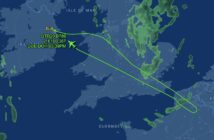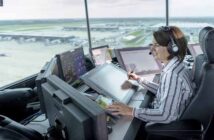These are the routes Ryanair has cancelled for winter in their spat with Dublin Airport over charges:
- Billund
- Bournemouth
- Carcassonne
- Castellón
- Genoa
- Klagenfurt
- Kosice
- Leipzig
- Nuremberg
- Palanga
- Palermo
- Plovdiv
- Santiago
- Sibiu
- Suceava
- Szczecin
Ryanair say they will be moving 19 of their B737 Max, which have lower noise levels and eco emissions, from Dublin. There will be a reduction in frequencies to Britain Ryanair CEO Eddie Wilson said he had written to the Minister for Transport Eamon Ryan three times to warn that this would happen.
The regulator charge at Dublin airport is currently €8.52 due to rise to €9.81 if Dublin Airport “delivers capital investment programme.” It is understood that Ryanair pay an even lower level than the regulator set charge.
Mr Wilson said the cut to routes and capacity in Dublin could lead to higher fares on some routes, which he described as “regrettable”. Ryanair also said the daa is reversing positive progress achieved under the Government’s Traffic Recovery Support Scheme which led to the airline boosting traffic post-pandemic by 117pc. “There is less airline seat capacity in Europe and they need to be attracting it, not driving it away,” Mr Wilson said.
Dublin airport CEO Kenny Jacobs responded that “Ryanair’s claim of a 45pc increase in charges in 2024 is false. As Ryanair knows well, the aeronautical charges at Dublin Airport are regulated by the IAA who set the maximum level of charges at Dublin Airport.
“There is nothing approaching a 45pc proposed in pricing at Dublin Airport which is patently false for anyone who has studied the regulators’ determination last December.”It also claims it does offer incentives to airlines including Ryanair, and that it does have plans for new and better infrastructure in Dublin including at Terminal 1 and 2.
He said It said airport charges in Dublin will increase by 6pc next year, not 45pc and these are set by the aviation regulator.
Kenny Jacobs said: “Ryanair’s claim that Dublin Airport offers no incentives to airlines is also false. A traffic recovery scheme is in place at Dublin Airport that has worked incredibly well and has facilitated the speedy 100pc bounce back in activity at Dublin Airport post-Covid. As the biggest beneficiary of the TRSS scheme, we can understand why Ryanair would like to see it remain in place beyond next March, but we are happy that Dublin Airport’s growth has recovered to pre-pandemic levels and we do not need to incentivise new growth given Dublin Airport has a planning capacity limit of 32 million passengers per annum.”
He urged Ryanair to “redo their sums” and join the airport on its “journey to a carbon free aviation eco-system”.”Rather than depending on back of a scratch card mathematics, I would urge those making such false statements, to redo their sums and more importantly study the range of sustainability incentives proposed at Dublin Airport and join us on the journey to a carbon free aviation eco-system over the coming years.”
In a separate development Ryanair launched a ten minute long video (view here) criticising DAA policy, particularly the decision to build a tunnel under the taxiway at Dublin airport.
Kenny Jacobs said: “Ryanair’s claim that an underpass is not needed at Dublin Airport is, once again, false. We have reviewed all options, including solutions in place at other European airports, and both the aviation regulator and daa agree the underpass solution is the optimum one from a safety perspective and we never compromise on safety.”
The full Ryanair statement:
DUBLIN AIRPORT LOSES 17 ROUTES & 19 ENVIRO FRIENDLY AIRCRAFT
DUE TO DAA 45% INCREASE IN COSTS
DAA “TUNNEL VISION” DAMAGES IRELAND’S CONNECTIVITY & GROWING ECONOMY
Ryanair, Ireland’s No.1 airline, today (21 Sep) announced that it has cut its Winter 23/24 schedule at Dublin Airport due to DAA’s rising passenger charges of 45%, ongoing CAPEX mismanagement and their failure to deliver a meaningful environmental incentive scheme that rewards lower emission aircraft. As a result, the airline has cancelled 17 routes and moved its entire Dublin-based enviro-friendly “Gamechanger” fleet (19 aircraft) to alternative EU airports that incentivise airlines to grow passenger numbers with quieter, lower CO2 emission aircraft.
DAA has a history of mismanagement at Dublin Airport, including understaffing summer security, wasting taxpayers’ money on ill-thought-out infrastructure projects, and failing to support low-cost access and sustainable growth. The DAA is increasing its already excessive charges by a ludicrous 45% to fund its €3bn gold-plated CAPEX programme, which includes a portfolio of unnecessary vanity projects which have no benefit for passengers. A prime example of this is DAA’s €250m cargo tunnel. This tunnel is superfluous and could easily be replaced with a tried and tested low-cost alternative like the crossing system at Cologne Airport – home of Europe’s Aviation Safety Agency (EASA).
DAA claims that it wants to grow traffic at Dublin Airport to 40m passengers p.a., but yet has no current plans to expand T1 or T2 to grow passenger and connectivity. DAA should have immediate plans to expand capacity at T1, for example, that could easily integrate low-cost gates into the existing infrastructure, growing connections, capacity, and the economy, but instead, they are fixated on building a €250m tunnel that go nowhere. DAA have a history of building the wrong infrastructure in the wrong place at exorbitant cost. T2 is a prime example; opened in 2010 at a bloated cost of €2bn. It is located in a cul-de-sac and can’t be expanded.
DAA has also failed to deliver a meaningful environmental scheme to incentivise airlines to grow with quieter, lower CO2 emissions. Ryanair, Dublin airport’s largest operator, has been forced to move its entire Gamechanger fleet (19 aircraft), which burns 16% less fuel and emits 40% less noise to other EU airports that incentivise growth and low-emission aircraft.
DAA is reversing all the good work done by the Govt. TRSS (Traffic Recovery Support Scheme), which restored Irish passenger numbers to over 100% of pre-Covid levels, with Ryanair growing 117% of pre-covid levels. DAA’s high costs, wasteful CAPEX programs and broken infrastructure mean Ireland is at risk of becoming like Germany, whose passenger numbers and connectivity are only 75% of pre-Covid levels due to rising and high airport charges.
Ryanair calls on DAA to urgently prioritise investment in facilities that are needed, infrastructure and incentive programs that will underpin passenger growth, reward lower-emission aircraft and lower charges to stimulate connectivity, which is what Ireland’s growing economy needs.
Speaking in Dublin, Ryanair’s Eddie Wilson said:
“It is regrettable that Ryanair is announcing 17 route cuts and the removal of 19 “Gamechanger” enviro-friendly aircraft this Winter at Dublin because there are no incentives at Dublin to grow traffic or reward investment in aircraft with lower C02 and noise emissions.
Unlike most other EU airports, DAA is unfortunately focused on increasing passenger charges by 45% and wasting €250m on a tunnel the same size as the Dublin Port tunnel that is not needed. DAA needs to build low-cost infrastructure to support passenger growth and connectivity but has failed to implement a growth incentive scheme or, indeed lower charges that reward those airlines who invest in lower emission aircraft.
The Irish Govt. implemented an innovative industry-leading Traffic Recovery Support Scheme post-Covid, with Ryanair responding with +117% recovery vs. pre-Covid levels, ensuring Ireland’s recovery of connectivity and tourism. Unfortunately, all this good work is now going to unravel with DAA’s misguided policy of increasing charges by 45%. Dublin Airport isn’t Heathrow; Dublin competes for traffic with other European Airports, and with less airline seat capacity returning post covid, airports must respond with incentives to attract that smaller pool of aircraft seat capacity. Sadly, DAA are oblivious to what is happening at airports elsewhere in Europe and is intent on rating charges by 45%, with hugely damaging consequences for Ireland.
Airports that have lowered charges and implemented incentive passenger growth schemes for lower-emission aircraft are recovering passenger numbers and growing connectivity. DAA’s policies are putting Ireland at risk of becoming just like Germany, whose passenger numbers are only 75% recovered vs. pre-Covid with reduced connections and tourism because they increased airport and security charges – precisely what DAA are now doing. What has played out in Germany will now be repeated in Ireland as higher airport charges mean lower passengers which runs counter to Govt policy to develop low-cost sustainable access to support a growing economy.
DAA should urgently prioritise investment in low-cost useful infrastructure and introduce incentive programs to lower charges that will facilitate passenger growth, reward lower-emission aircraft and lower charges to stimulate connectivity, underpinning tourism, and job growth, which is what Ireland’s growing economy needs.”




